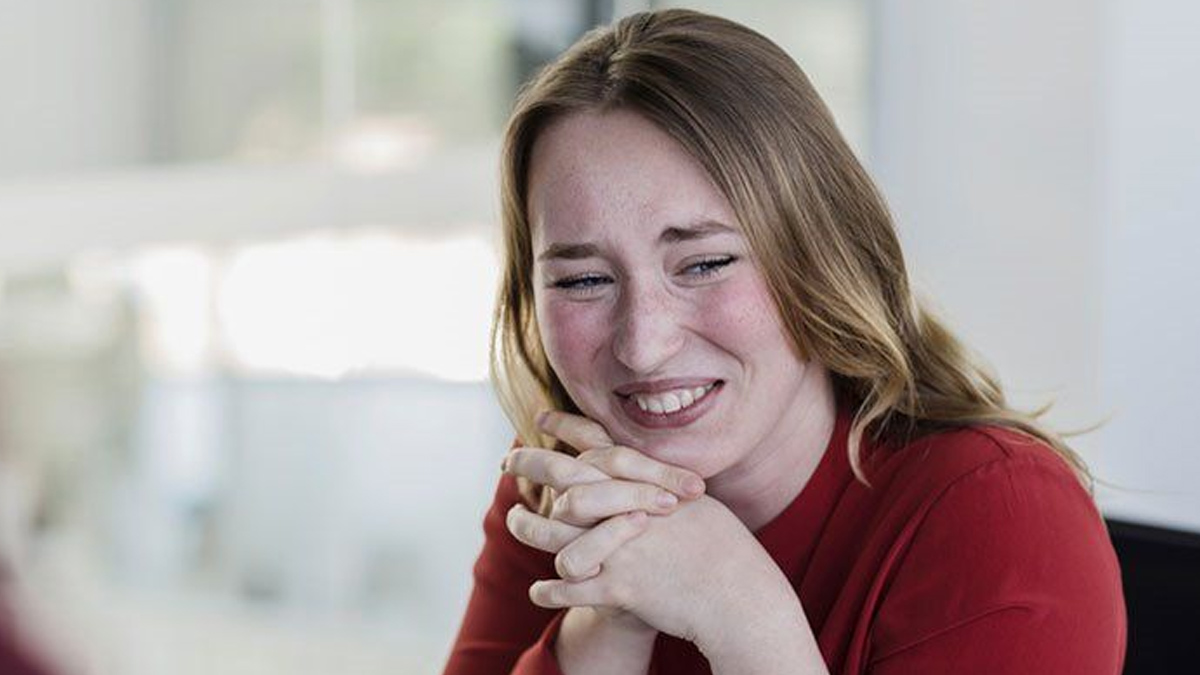
In an unexpected revelation, Anushka Shetty, the acclaimed actor from the blockbuster film "Baahubali," has shared her struggle with a rare neurological condition known as Pseudobulbar Affect (PBA), colloquially referred to as the ‘laughing disease’. This disclosure has brought attention to a little-known disorder that significantly affects daily life, even for celebrities like Shetty.
Table of Content:-
Understanding Pseudobulbar Affect (PBA)
Pseudobulbar Affect is a neurological disorder that results in sudden, uncontrollable episodes of laughing or crying that do not align with the individual's actual emotional state. These emotional outbursts can be particularly disruptive and embarrassing, impacting social interactions and professional settings.
Anushka Shetty's Personal Struggle
In a candid interview with Indiaglitz, the 42-year-old star detailed her experiences with PBA. She explained, “I have a laughing disease. You might wonder, ‘Is laughing a problem?’ For me, it is. If I start laughing, I can’t stop for 15 to 20 minutes. While watching or shooting comedy scenes, I literally roll on the floor laughing, and the shoot has been halted many times.” This insight into her personal struggle highlights the severity of the condition and its impact on her career.

What is Pseudobulbar Affect (PBA)?
PBA is characterized by episodes of uncontrollable laughter or crying, which are disproportionate or inappropriate to the context. This can be perplexing for those who experience it, as well as for those around them since the emotional expressions are not reflective of the person's actual feelings. The condition often arises from brain injuries or neurological disorders, such as amyotrophic lateral sclerosis (ALS), multiple sclerosis (MS), or stroke.
Symptoms of Pseudobulbar Affect
The primary symptom of PBA is involuntary and unpredictable emotional outbursts. These episodes can be triggered by seemingly mundane events and are often intense and difficult to control. The laughing or crying fits may last for several minutes, far exceeding the duration that would typically be expected for the situation. Other symptoms may include sudden outbursts of anger or frustration, adding to the social and emotional burden of the disorder.
Causes of Pseudobulbar Affect
The exact cause of PBA is not fully understood, but it is believed to result from disruptions in the brain's neurological pathways that control emotional expression. This disruption can occur due to a variety of neurological conditions, including:
- Traumatic brain injury
- Amyotrophic lateral sclerosis (ALS)
- Multiple sclerosis (MS)
- Alzheimer’s disease and other forms of dementia
- Stroke
- Parkinson’s disease
- Brain tumours
- Epilepsy
These conditions damage the brain's ability to regulate emotional responses, leading to the involuntary outbursts characteristic of PBA.
Also Read: Mom-To-Be Deepika Padukone's Trainer Reveals Her Pregnancy Workout Routine
Diagnosing Pseudobulbar Affect
Diagnosing PBA can be challenging, as it is often mistaken for mood disorders like depression or bipolar disorder. There is no definitive test for PBA; instead, diagnosis relies on a comprehensive evaluation of the patient’s symptoms, medical history, and mental health background. Healthcare providers also conduct physical examinations to rule out other potential causes of the symptoms.
Treating Pseudobulbar Affect
While there is no cure for PBA, treatments are available to help manage the symptoms. The primary goal of treatment is to reduce the frequency and severity of the emotional outbursts. Medications commonly prescribed for PBA include:
- Dextromethorphan/quinidine sulfate: This combination drug is specifically approved by the FDA for treating PBA. It combines a cough suppressant with a low dose of quinidine sulfate, historically used to treat cardiac arrhythmias.
- Antidepressants: Tricyclic antidepressants, selective serotonin reuptake inhibitors (SSRIs), and norepinephrine/serotonin reuptake inhibitors can also help manage PBA symptoms, usually at lower doses than those used for treating depression.
These medications can have side effects, so it is important for patients to work closely with their healthcare providers to find the most effective and safe treatment regimen.
Bottomline
Anushka Shetty's openness about her battle with Pseudobulbar Affect brings much-needed awareness to this challenging condition. PBA, though not widely known, significantly impacts those who live with it, disrupting both personal and professional lives. Understanding PBA, recognizing its symptoms, and seeking appropriate treatment can help manage this disorder, improving the quality of life for those affected.
Also watch this video
How we keep this article up to date:
We work with experts and keep a close eye on the latest in health and wellness. Whenever there is a new research or helpful information, we update our articles with accurate and useful advice.
Current Version